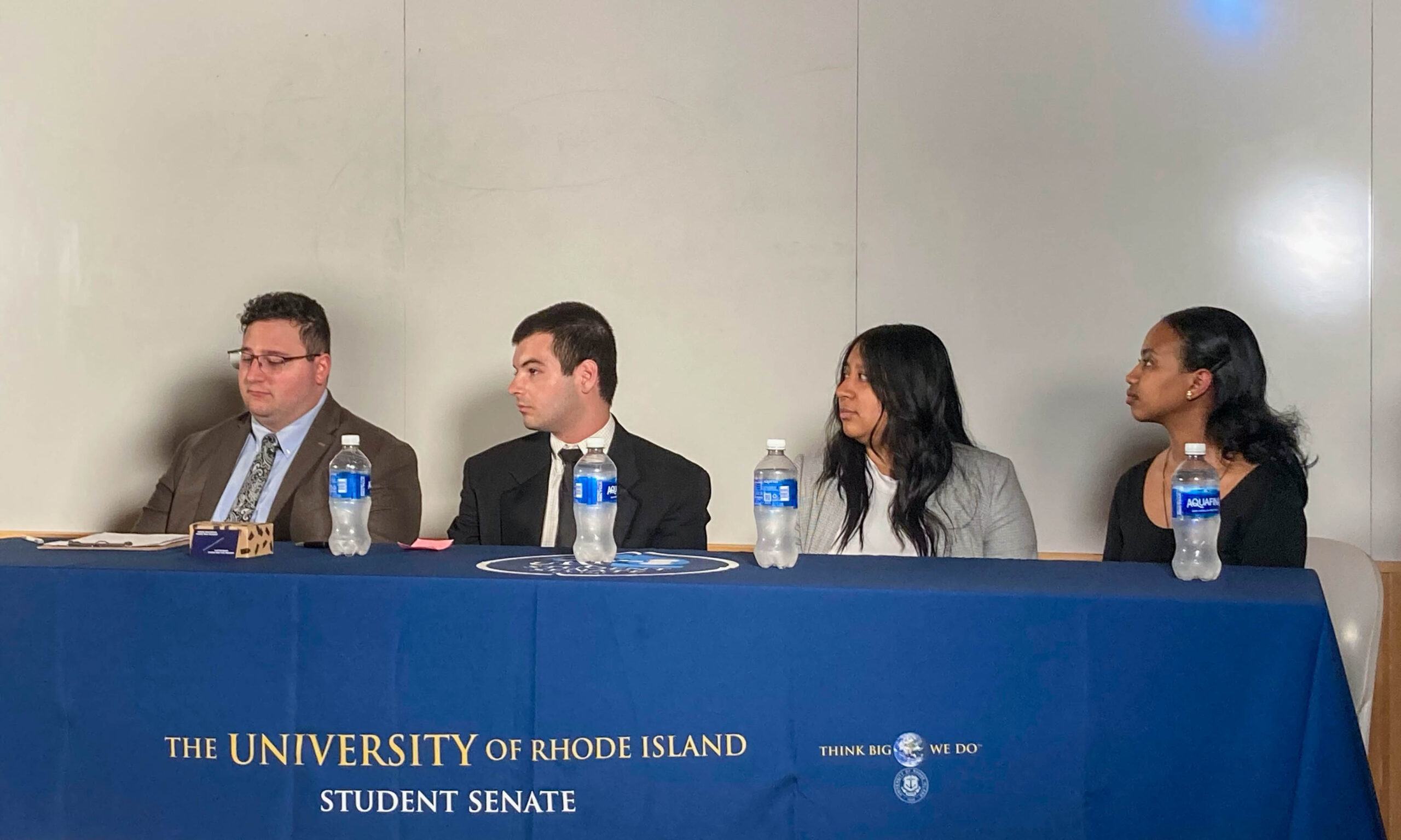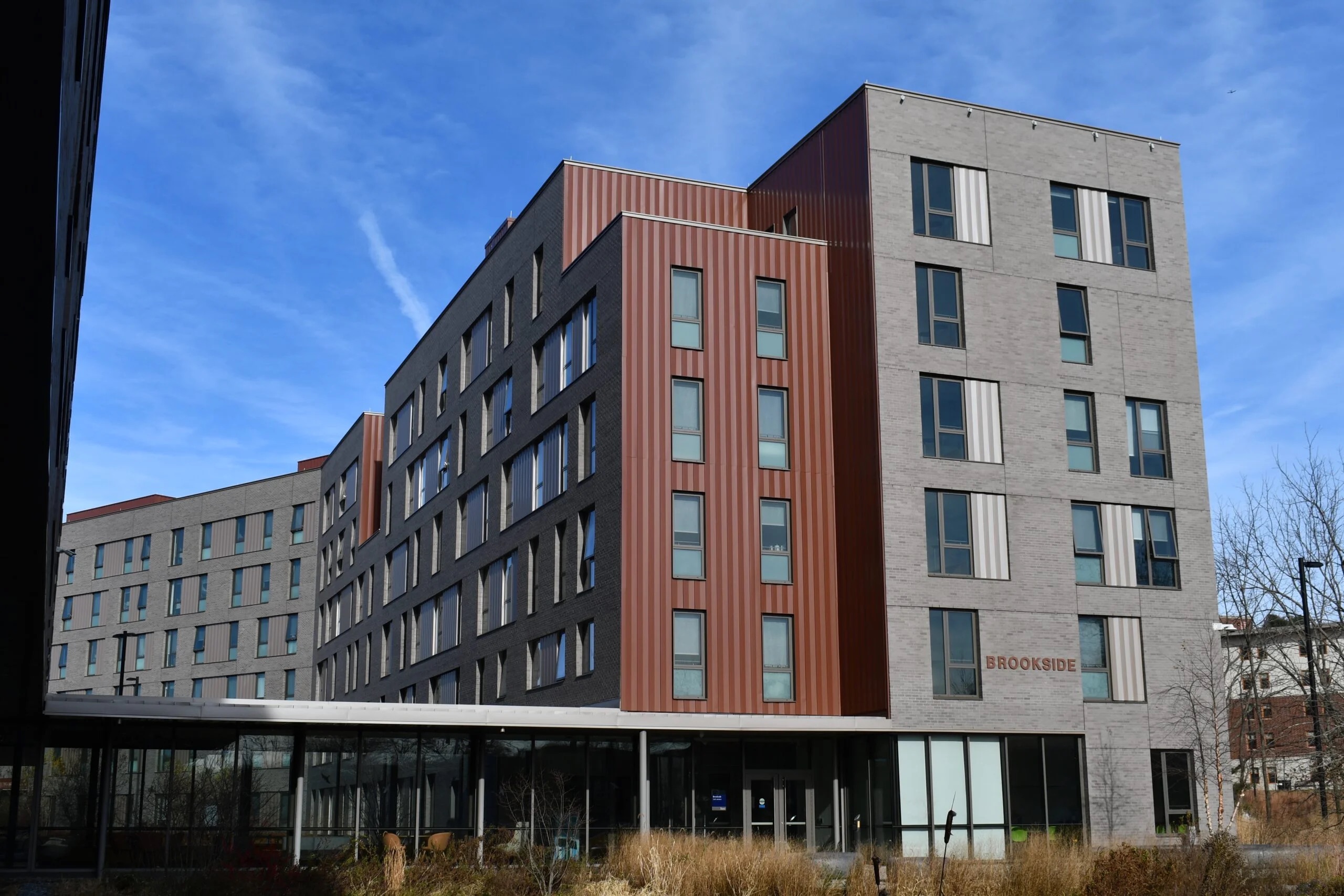On Sunday, Oct. 5, members of the University of Rhode Island football team allegedly stormed into the Chi Phi fraternity house and attacked several fraternity members, resulting in several injuries.
In a segment with Rhode Island Public Radio, URI President David Dooley “defended the football team†and said, “We are striving to be one community, we work on that all the time. But unfortunately sometimes people make very poor decisions.â€
The university released a statement after the incident on its website, stating what happened and that the investigation was ongoing, said Linda Acciardo, director of communications and marketing. While there was never a statement directed at students via email, Acciardo said that emailed safety notices and warnings that do affect the majority of the University population “are a priority.â€
This incident follows a trend of school shootings and increased campus violence around the United States this past year. According to this year’s annual Clery Act Report, URI saw increases in accounts of violence over the last year, including assault, domestic and dating violence.
It is becoming more prevalent that these issues need to be addressed, which the university has acted on by arming campus police and making them a more visible part of the campus community.
Paul Bueno de Mesquita, Ph.D., director of the URI Center for Nonviolence and Peace Studies, has a different approach to addressing and further preventing campus violence.
“Arming police or having armed guards in classrooms, or even arming faculty really doesn’t get to the real issue,†de Mesquita said, adding that this “only contributes to more violent conditions and means in a campus community.â€
Instead, de Mesquita looks at things from Dr. Martin Luther King Jr.’s perspective. In order to have a harmonious society, all aspects – like a person’s background and situation – need to be considered.
“At the center, we focus on the root causes,†de Mesquita said. “We need to address not the surface level issues or the people, but the conditions that may be contributing to the violence.â€
There are a lot of things, he added, that can trigger these violent responses. People can be psychologically imbalanced, socially isolated or not fully integrated into the campus community. He said social relationships are the root cause of so many of these problems, especially when people feel excluded. Â
“The institution has a responsibility to respond to infractions of rules and policies,†de Mesquita said. “But I think what’s needed is a more systematic look at these issues on campus. It’s more important to then focus on those underlying conditions.â€
He said incorporating more nonviolence and peace studies classes into freshman orientation or general education requirements is a huge way to start to promote a community of peaceful conflict resolution.
Those classes, which cover topics like understanding different types of violence, conflict analysis and bystander training are something with which Stephen Baker, director of Public Safety, can get on board.
“I think that nonviolence classes have their place and can help lead to prevention before [violent incidences] occur so that people understand it’s not the right route to take,†Baker said. “Threats come from personal issues. But they do happen and the police have to respond accordingly.â€
De Mesquita thinks that the university should take steps to turn those unfortunate encounters into more rehabilitating experiences. By enabling students with the tools to properly handle conflict, he thinks those skills will help to create a more harmonious campus community.
“Incidents of violence could be diverted into some form of nonviolence. It should be a requirement to complete some workshop or training or experience that would give [offenders] the conflict-reconciliation skills that they need,†de Mesquita said.
He added that policing and straight discipline doesn’t get to the heart of the cause, and feels that restorative justice is the right way to go in terms of dealing with these issues long-term.
“If institutions that are committed to this, we have to work from both sides,†de Mesquita said. “You have to respect political, state, and social pressures about arming police, But on the other side they have to work just as hard.â€
Baker agrees, and hopes that with the new community policing situations will continue to improve. He feels that the university as a whole is doing a good job at working with different groups of students to understand how to intervene in situations before they escalate. But he admitted that there is still work that needs to be done.
“Universities and colleges are not funded well enough to support students as they go through financial pressures and academic stress, or social difficulties. Put all those things together, and it’s a recipe for trouble,†de Mesquita said.
He continued that if the university took $400,000 and spent it on programs that would educate, train and prepare people to provide more support and increase mental health needs of students on campus, he believes we could create “a truly beloved campus community.â€
“We could do more of it if the university took it on as a serious opportunity. We could be the first university campus to be truly nonviolent,†de Mesquita said. “Now that would be a big idea.â€




